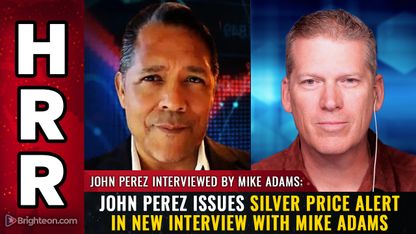
Google and Facebook require vaccines for anyone entering their offices
Google CEO Sundar Pichai said the vaccine mandate would be introduced to United States-based employees "in the coming weeks." He said the company will then expand this vaccine mandate to its employees based in other countries in the coming months.
Pichai believed the vaccine mandate will give Google's workforce of more than 144,000 employees in the U.S. and at least 50 countries "greater peace of mind as offices open."
"Getting vaccinated is one of the most important ways to keep ourselves and our communities healthy in the months ahead," he claimed. Pichai is ignoring the fact that researchers believe the COVID-19 vaccines are responsible for spreading the virus.
Pichai said the implementation of the vaccine mandate in the U.S. and abroad will vary "according to local conditions and regulations." They will also not be applied "until vaccines are widely available" in the said regions.
The Google CEO added that accommodations will be made for people who are unable to get the COVID-19 vaccines for medical, religious or other reasons protected by federal law.
But those with political reasons to refuse the coronavirus vaccines will be effectively segregated from the rest of Google. These employees will be asked to continue working from home and to speak with the company's human resources department regarding their future with the company.
Pichai also said that Google is extending its work from home arrangement for all of its offices around the world until Oct. 18. The company previously planned to reopen its offices for all of its employees in mid-September.
The Google CEO noted that the Oct. 18 date is not final, and may be pushed further back. If it does, it will give employees at least 30 days' notice.
Facebook released its own statement regarding vaccinations several hours after Google. The company said it would require the experimental COVID-19 vaccines for all of its 58,000 employees coming to work at its offices in the U.S.
"How we implement this policy will depend on local conditions and regulations," said Facebook Vice President of Human Resources Lori Goler, in a statement. "We will have a process for those who cannot be vaccinated for medical or other reasons and will be evaluating our approach in other regions as the situation evolves."
Facebook has not set a deadline for when employees should get vaccinated.
Google and Facebook might influence other companies to mandate vaccines
Workplace vaccine mandates have so far been rare outside of the healthcare industry. (Related: Vaccine mandates in healthcare industry are growing, and they are expected to accelerate once FDA grants full approval.)
But with their recent announcements, Google and Facebook have become the largest private corporations in the U.S. to coerce their employees to get vaccinated with the threat of unemployment. This comes on the heels of similar mandates being introduced in recent days by federal and local governments.
Local, state and federal governments are working with private corporations to implement vaccine mandates to boost vaccination rates. The U.S.'s vaccination rate has stalled in recent days, with around 49 percent of the country fully vaccinated, and another eight percent having received the first dose.
Many private entities are hesitant to mandate COVID-19 vaccinations because such requirements can prompt costly employee lawsuits and trigger difficult confrontations with non-compliant staff.
But Google and Facebook are big tech companies worth hundreds of billions of dollars each. Larger companies like these are less likely to be deterred by the possibility of being sued in court.
Other tech giants are already mandating vaccinations. Twitter said earlier this week that its workers that come into work in its New York and San Francisco offices need to be fully vaccinated and present proof using vaccine passports.
Learn more about the vaccine mandates by reading the latest articles at Vaccines.news.
Sources include:
Please contact us for more information.























